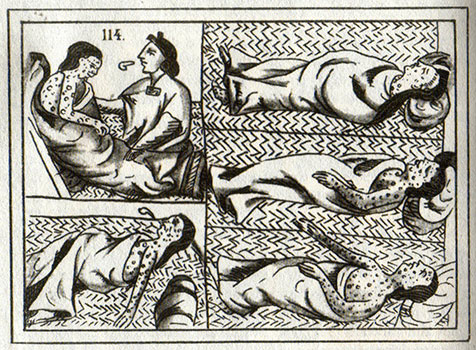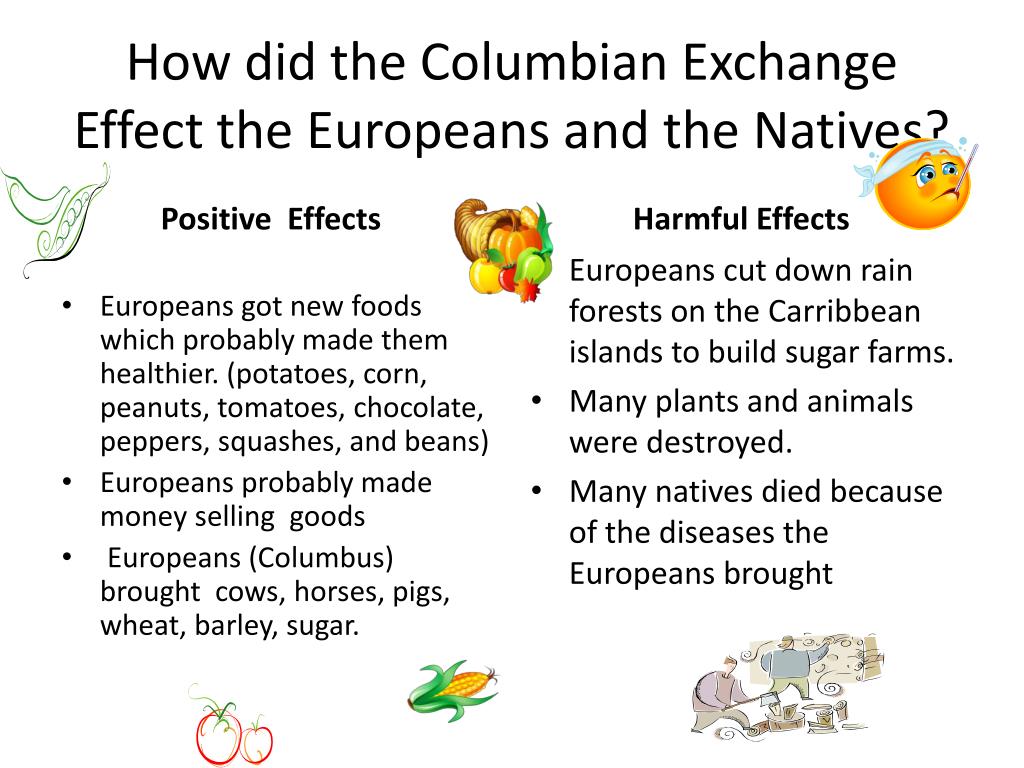Sugar and Tobacco Figure 2. Adriaen van Ostade, a Dutch artist, painted An Apothecary Smoking in an Interior in 1646. The large European market for American tobacco strongly influenced the development of some of the American colonies. Of all the commodities in the Atlantic World, sugar proved to be the most important.
The Columbian Exchange & Global Trade. The Colombian Exchange: The transfer of goods, foods, plants, animals, & slaves between Europe, Africa, & the Americas. – ppt download
Jul 10, 2022From the Columbian Exchange to Transculturation. The economic and cultural exchange in the wake of Columbus’s voyages brought about a profound shift in the world view of Europeans; the trading empires that resulted from the discovery of the Americas created a new, global economy in which many different peoples interacted.

Source Image: worldhistory.org
Download Image
May 19, 2022The Columbian Exchange is a term coined by Alfred Crosby Jr. in 1972 that is traditionally defined as the transfer of plants, animals, and diseases between the Old World of Europe and Africa and the New World of the Americas. The exchange began in the aftermath of Christopher Columbus’ voyages in 1492, later accelerating with the European colonization of the Americas.

Source Image: billofrightsinstitute.org
Download Image
Columbian Exchange | Diseases, Animals, & Plants | Britannica 164 Journal of Economic Perspectives ccausedaused ddevastation far exceeding that of even the Black Death in fourteenth-century evastation far exceeding that of even the Black Death in fourteenth-century EEurope. Europeans brought deadly viruses and bacteria, such as smallpox, measles, urope.

Source Image: britannica.com
Download Image
How Did The Columbian Exchange Affect European Trade
164 Journal of Economic Perspectives ccausedaused ddevastation far exceeding that of even the Black Death in fourteenth-century evastation far exceeding that of even the Black Death in fourteenth-century EEurope. Europeans brought deadly viruses and bacteria, such as smallpox, measles, urope. Period 1: 1491-1607 The Columbian Exchange View a visualization of the Columbian Exchange. Millions of years ago, continental drift carried the Old World and New Worlds apart, splitting North and South America from Eurasia and Africa.
Columbian Exchange | Diseases, Animals, & Plants | Britannica
The phrase “the Columbian Exchange” is taken from the title of Alfred W. Crosby’s 1972 book, which divided the exchange into three categories: diseases, animals, and plants. Diseases influenza virus A coloured transmission electron micrograph showing influenza viruses (red) at the outer surface of a host cell. (more) Exploration And Conquest – Guest Hollow

Source Image: guesthollow.com
Download Image
1.03 The Columbian Exchange and Its Impact The phrase “the Columbian Exchange” is taken from the title of Alfred W. Crosby’s 1972 book, which divided the exchange into three categories: diseases, animals, and plants. Diseases influenza virus A coloured transmission electron micrograph showing influenza viruses (red) at the outer surface of a host cell. (more)

Source Image: accessdl.state.al.us
Download Image
The Columbian Exchange & Global Trade. The Colombian Exchange: The transfer of goods, foods, plants, animals, & slaves between Europe, Africa, & the Americas. – ppt download Sugar and Tobacco Figure 2. Adriaen van Ostade, a Dutch artist, painted An Apothecary Smoking in an Interior in 1646. The large European market for American tobacco strongly influenced the development of some of the American colonies. Of all the commodities in the Atlantic World, sugar proved to be the most important.

Source Image: slideplayer.com
Download Image
Columbian Exchange | Diseases, Animals, & Plants | Britannica May 19, 2022The Columbian Exchange is a term coined by Alfred Crosby Jr. in 1972 that is traditionally defined as the transfer of plants, animals, and diseases between the Old World of Europe and Africa and the New World of the Americas. The exchange began in the aftermath of Christopher Columbus’ voyages in 1492, later accelerating with the European colonization of the Americas.

Source Image: britannica.com
Download Image
The Columbian Exchange – ppt download The Columbian exchange, also known as the Columbian interchange, was the widespread transfer of plants, animals, precious metals, commodities, culture, human populations, technology, diseases, and ideas between the New World (the Americas) in the Western Hemisphere, and the Old World ( Afro-Eurasia) in the Eastern Hemisphere, in the late 15th

Source Image: slideplayer.com
Download Image
PPT – Explorers PowerPoint Presentation, free download – ID:5247500 164 Journal of Economic Perspectives ccausedaused ddevastation far exceeding that of even the Black Death in fourteenth-century evastation far exceeding that of even the Black Death in fourteenth-century EEurope. Europeans brought deadly viruses and bacteria, such as smallpox, measles, urope.

Source Image: slideserve.com
Download Image
Columbian Exchange. Columbian Exchange And… How did it change the World? What is the. – ppt download Period 1: 1491-1607 The Columbian Exchange View a visualization of the Columbian Exchange. Millions of years ago, continental drift carried the Old World and New Worlds apart, splitting North and South America from Eurasia and Africa.

Source Image: slideplayer.com
Download Image
1.03 The Columbian Exchange and Its Impact
Columbian Exchange. Columbian Exchange And… How did it change the World? What is the. – ppt download Jul 10, 2022From the Columbian Exchange to Transculturation. The economic and cultural exchange in the wake of Columbus’s voyages brought about a profound shift in the world view of Europeans; the trading empires that resulted from the discovery of the Americas created a new, global economy in which many different peoples interacted.
Columbian Exchange | Diseases, Animals, & Plants | Britannica PPT – Explorers PowerPoint Presentation, free download – ID:5247500 The Columbian exchange, also known as the Columbian interchange, was the widespread transfer of plants, animals, precious metals, commodities, culture, human populations, technology, diseases, and ideas between the New World (the Americas) in the Western Hemisphere, and the Old World ( Afro-Eurasia) in the Eastern Hemisphere, in the late 15th